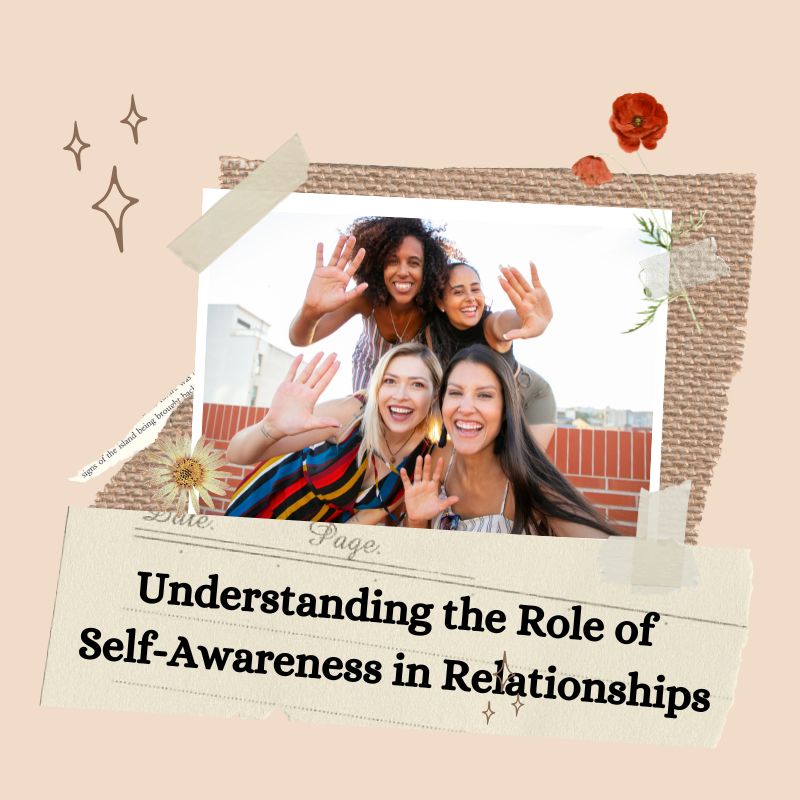Building healthy relationships isn’t just about finding the right people — it’s about understanding yourself first. When you know your emotions, triggers, and communication style, you become more capable of forming meaningful and lasting connections. This article explores how to build healthy relationships through self-awareness, emphasizing emotional intelligence, empathy, and authentic communication.
Understanding the Role of Self-Awareness in Relationships

Self-awareness is the foundation of emotional intelligence. It’s the ability to recognize your own emotions, thoughts, and behaviors — and understand how they affect others. In relationships, self-awareness acts as a mirror that reflects your true self, helping you respond thoughtfully instead of reacting impulsively.
When you are self-aware, you can:
- Identify emotional triggers and manage them calmly.
- Communicate your needs and boundaries clearly.
- Recognize and respect your partner’s emotions.
- Make conscious choices that strengthen connection.
Without self-awareness, relationships can become reactive and filled with misunderstandings. It’s not about perfection — it’s about progress and mindful awareness.
1. Self-Victimization vs. Self-Empowerment
Many people fall into the trap of self-victimization—blaming others for their unhappiness or challenges. This mindset keeps you stuck in frustration because it gives away your power to change.
Self-empowerment, however, begins when you take responsibility for your own emotions and actions. Instead of asking “Why is this happening to me?”, empowered individuals ask, “What can I learn from this situation?”
For example, if a partner forgets something important, self-victimization might say, “They don’t care about me,” while self-awareness says, “I feel hurt because I value being remembered.” The second approach opens space for honest dialogue instead of blame..
2. What Self-Awareness Looks Like in Daily Interactions
Self-awareness is not just about deep reflection—it’s about everyday behaviors. You can recognize a self-aware person by how they listen, communicate, and manage emotions.
Signs of a self-aware partner include:
- Recognizing emotional triggers before reacting
- Listening with curiosity instead of defensiveness
- Accepting feedback without feeling attacked
- Taking responsibility for mistakes without guilt-tripping
- Communicating needs calmly and clearly
When both partners practice these habits, they create emotional safety—a relationship environment where honesty and vulnerability are welcomed.
3. Journaling, Affirmations & Redirecting Emotional Responses
Developing self-awareness requires consistent effort, especially when dealing with emotional triggers. Three simple tools can help: journaling, affirmations, and emotional redirection.
Journaling
Writing down your feelings allows you to understand emotional patterns. Ask reflective questions such as:
- What emotion am I feeling right now, and why?
- Did I overreact or withdraw today?
- What story am I telling myself about this interaction?
Journaling builds perspective—it helps you step back and see situations more objectively.
Affirmations
Affirmations reshape your mindset and help you respond with calm. Examples include:
“I respond with clarity, not emotion.”
“I create peace by being aware of my reactions.”
“Self-awareness strengthens my relationships.”
Redirecting Emotional Responses
When you notice a strong emotional reaction, take a deep breath before responding. This momentary pause shifts your response from instinct to intention, turning arguments into opportunities for understanding.
4. The Role of Mindfulness and Emotional Intelligence
Mindfulness—the practice of being present—allows you to experience emotions without judgment. It helps you recognize when your mind is being defensive, fearful, or reactive.
Coupled with mindfulness, emotional intelligence (EI) enhances relationship quality. EI includes:
- Self-regulation: Managing impulses and staying calm
- Empathy: Understanding others’ feelings
- Social skills: Navigating interactions with grace
- Motivation: Striving for understanding instead of being “right”
Partners who practice mindfulness and emotional intelligence experience fewer conflicts because they communicate from a place of awareness, not ego.
5. Setting Boundaries with Self-Awareness
Healthy relationships depend on clear and compassionate boundaries. Without them, emotional exhaustion and resentment can grow.
Self-awareness helps you understand your limits and communicate them respectfully. For example:
- “I need some quiet time to recharge after work.”
- “I feel uncomfortable when plans change last minute; can we discuss it first?”
Boundaries are not barriers—they are bridges built on respect. They protect your emotional energy while showing others how to care for you.
Remember, setting boundaries is not selfish; it’s a form of self-respect that benefits both you and your partner.
6. How Self-Awareness Improves Communication
The most common cause of relationship stress is poor communication, often rooted in emotional unawareness. When you don’t understand your own feelings, you might project them onto others or communicate in defensive ways.
Self-awareness helps you speak from clarity instead of confusion.
To communicate consciously:
- Use “I” statements: Replace “You never listen” with “I feel unheard when I’m interrupted.”
- Listen fully: Focus on understanding, not preparing a counter-argument.
- Validate emotions: You can say, “I understand you feel upset,” even if you see things differently.
This kind of communication builds trust and intimacy because it encourages openness rather than judgment.
7. Common Mistakes to Avoid When Developing Self-Awareness
While self-awareness is transformative, there are pitfalls to avoid:
Overanalyzing yourself: Too much self-examination can create anxiety. Focus on awareness, not perfection.
Confusing awareness with control: You can’t control every emotion, but you can control your reaction to it.
Ignoring feedback: Sometimes others see our blind spots more clearly than we do. Listen to feedback without defensiveness—it’s a mirror for growth.
The goal is to evolve, not to eliminate every flaw.
8. Steps to Cultivate Self-Awareness Every Day
Consistency turns awareness into a habit. Incorporate these steps into your daily life:
- Morning reflection: Ask, “How do I want to show up in my relationships today?”
- Pause before reacting: Take one deep breath before responding to emotional triggers.
- Daily journaling: End your day by noting one insight about your interactions.
- Seek feedback: Invite honest input from trusted friends or your partner.
- Practice gratitude: Acknowledge what’s going right instead of fixating on flaws.
- Mindful presence: When spending time with someone, give your full attention—no distractions.
These micro-habits may seem simple, but over time, they rewire your emotional responses, leading to greater harmony.
9. Grow Within to Grow Together
At its heart, self-awareness is self-love in action. When you understand yourself, you can meet others with more empathy, patience, and authenticity.
Healthy relationships don’t rely on perfection—they thrive on mutual growth. Each moment of awareness brings you closer to emotional balance and deeper connection.
As you learn to pause, reflect, and respond with consciousness, you’ll notice not only smoother communication but also more fulfilling bonds built on trust and respect.
Conclusion
Building healthy relationships begins with looking inward. Self-awareness transforms emotional chaos into clarity and conflict into understanding. Through journaling, mindfulness, and honest communication, you can nurture relationships grounded in empathy and authenticity.
Start today—take one small step toward greater awareness. The journey within is the key to meaningful, lasting relationships.

